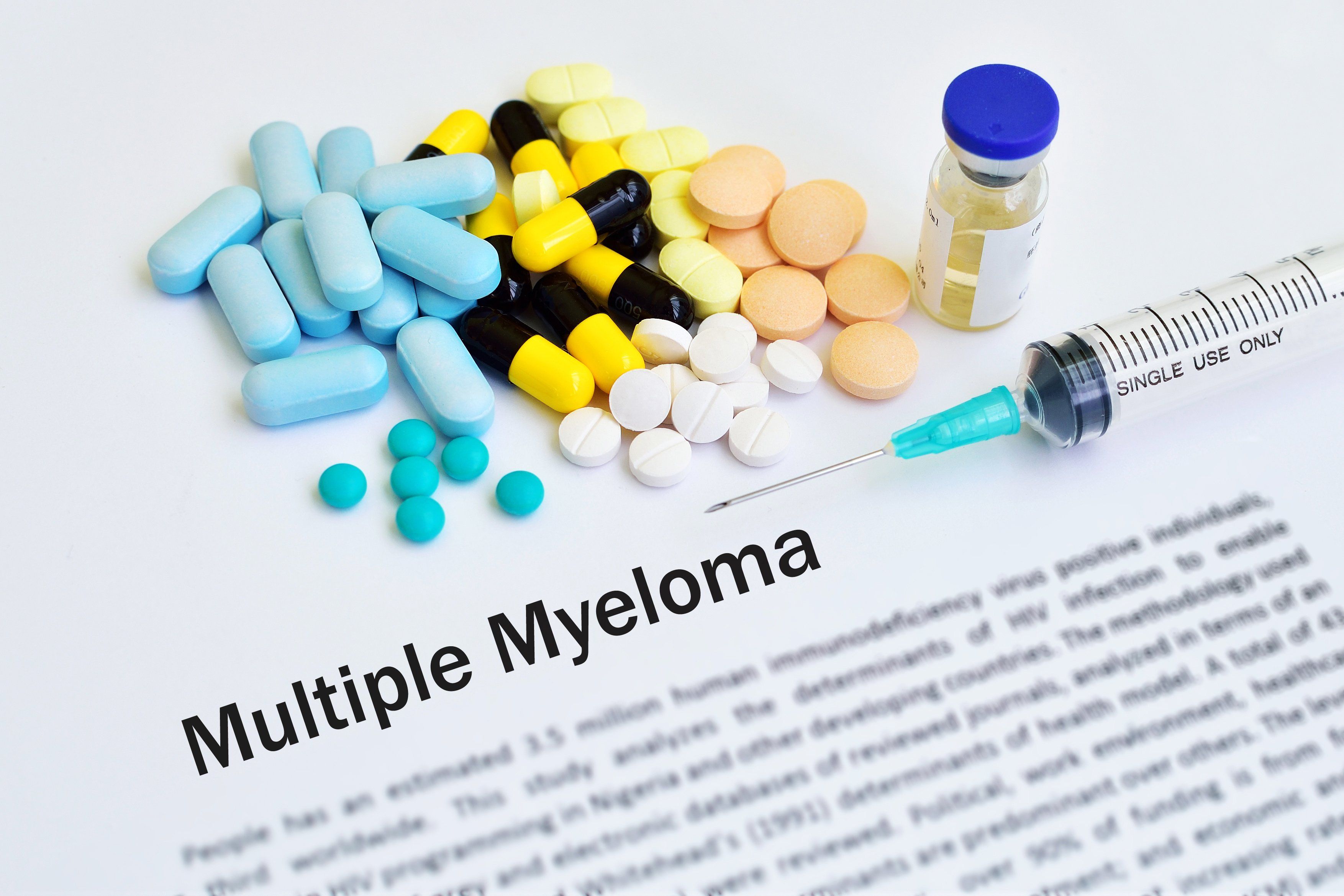- Safety & Recalls
- Regulatory Updates
- Drug Coverage
- COPD
- Cardiovascular
- Obstetrics-Gynecology & Women's Health
- Ophthalmology
- Clinical Pharmacology
- Pediatrics
- Urology
- Pharmacy
- Idiopathic Pulmonary Fibrosis
- Diabetes and Endocrinology
- Allergy, Immunology, and ENT
- Musculoskeletal/Rheumatology
- Respiratory
- Psychiatry and Behavioral Health
- Dermatology
- Oncology
New multiple myeloma treatment works by targeting cells
Isatuximab-irfc (Sarclisa, Sanofi-Aventis) was approved in combination with pomalidomide and dexamethason to treat adult patients with multiple myeloma who have received at least two prior therapies.

FDA cleared a new multiple myeloma treatment that works by helping certain cells in the immune system attack multiple myeloma cancer cells.
The drug, isatuximab-irfc (Sarclisa, Sanofi-Aventis) was approved in combination with pomalidomide and dexamethason to treat adult patients with multiple myeloma who have received at least two prior therapies including lenalidomide and a proteasome inhibitor.
The wholesale acquisition cost (WAC) for Sarclisa correlates to a cost of $5,200 per infusion, Sanofi says in a press release.
“Actual costs to patients are generally anticipated to be lower as the list price does not reflect insurance coverage, copay support, or financial assistance from patient support programs. Sanofi is committed to responsible pricing while bringing innovative and valuable therapies to patients with significant unmet need.”
Related: Top 6 Cancer Drug Trends
Sarclisa, administered through intravenous (IV) infusion, is a CD38-directed cytolytic antibody. It received Orphan Drug designation, which provides incentives to encourage the development of drugs for rare diseases.
“Targeting cells has led to the development of important oncology treatments. While there is no cure for multiple myeloma, Sarclisa is now another CD38-directed treatment option added to the list of FDA-approved treatments of patients with multiple myeloma who have progressive disease after previous therapies,” says Richard Pazdur, MD, director of the FDA’s Oncology Center of Excellence and acting director of the Office of Oncologic Diseases in the FDA’s Center for Drug Evaluation and Research, in a press release.
FDA’s approval was based on a clinical trial that included 307 patients with relapsed and refractory multiple myeloma who had received at least two prior therapies, including lenalidomide and a proteasome inhibitor.
Half of the patients received Sarclisa in combination with pomalidomide and low-dose dexamethasone and the other half received only pomalidomide and low-dose dexamethasone.
Related: Merck’s Keytruda Snags Another Cancer Indication
Patients who received Sarclisa in combination with pomalidomide and low-dose dexamethasone showed improvement in PFS with a 40% reduction in the risk of disease progression or death compared to patients who received pomalidomide and dexamethasone. “These patients also had an overall response rate of 60.4%,” according to the FDA. In comparison, the patients who only received pomalidomide and low-dose dexamethasone had an overall response rate of 35.3%.
Common side effects for patients taking Sarclisa were neutropenia (abnormally low levels of white blood cells), infusion-related reactions, pneumonia (infection of the air sacs in one or both of the lungs), upper respiratory tract infection, diarrhea, anemia, lymphopenia (decrease in the level of white blood cells) and thrombocytopenia (abnormally low levels of platelets), FDA said.
Read more: FDA Clears Novel Generic Thyroid Cancer Treatment
FDA Issues Complete Response Letter for Pz-Cel to Treat Epidermolysis Bullosa
April 22nd 2024Prademagene zamikeracel is a cell therapy designed to incorporate the functional collagen-producing COL7A1 gene into a patient’s own skin cells. The FDA is asking for additional information on manufacturing practices.
